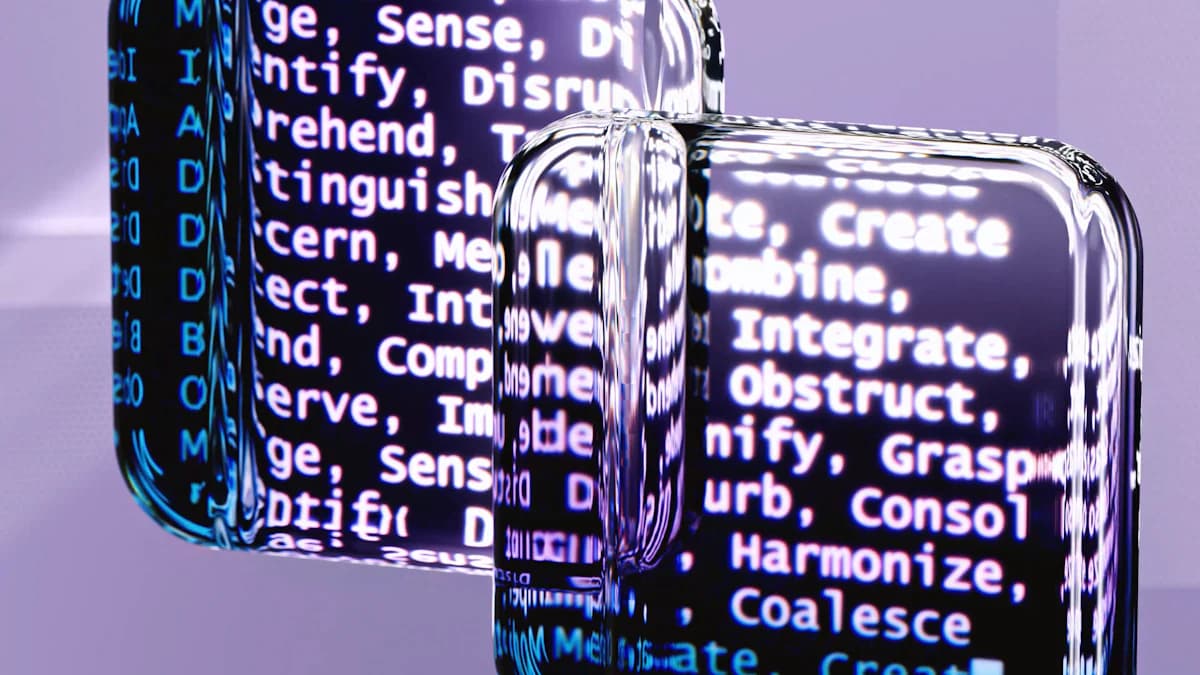Posted by
Related reading
How Readers Instantly Spot AI-Written Content
Readers can spot AI writing fast. Learn the patterns that give it away, and how to humanize AI content before trust and rankings drop.
Why Humanizing AI Content Matters in 2026
In 2026, AI content is everywhere, but trust is falling. Learn why humanizing AI content improves SEO, engagement, and conversions, backed by data and research.
Best AI to Human Text Converters: Transform AI-Generated Text into Natural Writing
Discover the premier AI text converters that revolutionize digital content creation. Transform generic AI text into compelling, natural writing that resonates with readers. Unearth how tools like AITextHumanize and Grammarly elevate your content's authenticity and engagement, making it truly undetectable by AI detectors.
Mastering Claude AI Detectors: Essential Tips
Detecting AI-generated content has become crucial in today's digital world. AI tools create text that often mimics human writing, making it hard to distinguish between the two. The Claude AI Detector plays a vital role in maintaining content integrity. This tool excels in identifying AI-generated text with impressive accuracy. For instance, the Model 3.0 Turbo achieves a remarkable 99.3% accuracy rate. Such precision ensures that you can trust the content you read or publish. Understanding how these detectors work helps you stay ahead in the ever-evolving landscape of digital content.
Understanding AI-Generated Text
Characteristics of AI Writing
Style Indicators
AI writing often shows unique style indicators. Sentences might follow a predictable pattern. The language can feel formal or overly structured. Look for repetitive phrases. These can signal AI involvement.
Content Patterns
AI-generated content usually follows specific patterns. Information might appear in a logical sequence. However, creativity may lack depth. The text can seem factual but miss emotional nuances. Recognizing these patterns helps identify AI writing.
Factual Inconsistencies
AI models sometimes produce factual inconsistencies. The text might include outdated or incorrect data. Cross-checking facts becomes essential. This ensures the information remains reliable and accurate.
Common AI Models
Overview of Claude AI
Claude AI stands out with impressive capabilities. The latest model, Claude 2.1, processes up to 150,000 words. This model reduces incorrect answers by 30% compared to earlier versions. Claude models handle various file formats like PDFs and DOCX.
Comparison with Other Models
Claude AI offers distinct advantages over competitors. Claude 2 uses updated data from 2022 and early 2023. It generates documents up to 4000 tokens. Claude 3 Opus excels in handling complex tasks. This makes Claude a leader in AI technology.
Claude AI Detector
 Image Source: pexels
Image Source: pexels
Setting Up the Claude AI Detector
Installation Process
Getting started with the Claude AI Detector is simple. First, download the software from the official website. Make sure your system meets the necessary requirements. Run the installer and follow the on-screen instructions. The process takes only a few minutes. Once installed, open the application to begin configuration.
Configuration Tips
Proper configuration enhances accuracy. Adjust settings according to your needs. Enable automatic updates to keep the detector current. Use the default settings for general use. For specific tasks, customize the parameters. This flexibility ensures the Claude AI Detector performs optimally.
Running a Detection with Claude AI Detector
Step-by-Step Guide
Running a detection involves a straightforward process. Open the Claude AI Detector. Upload the text or document you want to analyze. Click the "Detect" button. The detector will scan the content quickly. Results appear within seconds. The interface is user-friendly, making navigation easy.
Interpreting Results
Understanding the results is crucial. The Claude AI Detector provides a detailed report. Look for highlighted sections indicating AI-generated content. A percentage score shows the likelihood of AI involvement. Use this information to make informed decisions. Trust the Claude AI Detector for reliable insights.
Enhancing Detection Accuracy
 Image Source: pexels
Image Source: pexels
Combining Tools
Integrating with Other Software
Integrating Claude AI Detector with other software boosts accuracy. Use text editors or content management systems for seamless operations. This integration streamlines workflows and enhances detection capabilities. Many users find this approach effective for large-scale projects.
Cross-Verification Techniques
Cross-verification strengthens detection results. Pair Claude AI Detector with other tools for a comprehensive analysis. This method reduces errors and increases confidence in the findings. Many experts recommend cross-verification for critical tasks.
Continuous Learning
Staying Updated with AI Trends
Staying updated with AI trends keeps you ahead. Follow industry blogs and news for the latest developments. Regular updates ensure you understand new features and improvements. This knowledge enhances your ability to use detectors effectively.
Training and Workshops
Participate in training and workshops to sharpen skills. These sessions offer hands-on experience with Claude AI Detector. Learn from experts and gain insights into advanced techniques. Many users find workshops invaluable for mastering AI detection.
Mastering AI detection is crucial for ensuring content reliability. You gain the ability to identify AI-generated text accurately. Continuous learning keeps you updated with the latest trends and tools. Adaptation enhances your skills in this ever-evolving field. The future of AI detection promises exciting advancements. Staying informed helps you harness these innovations effectively. Embrace the journey of learning and adaptation. Your expertise will grow, and you'll navigate the digital landscape with confidence.